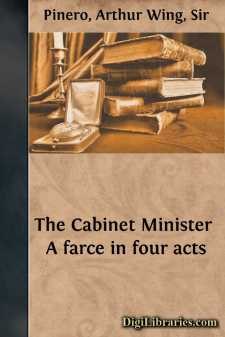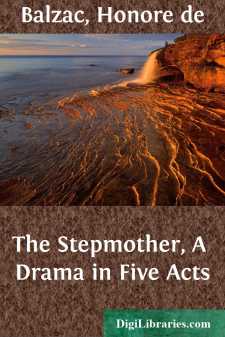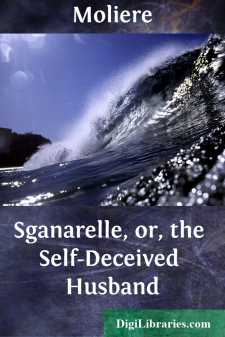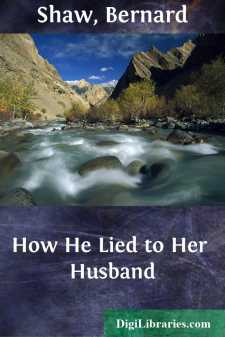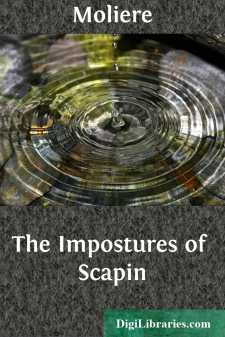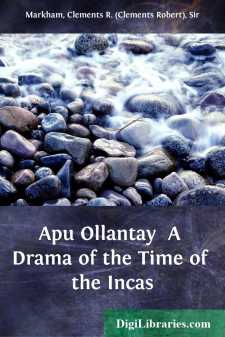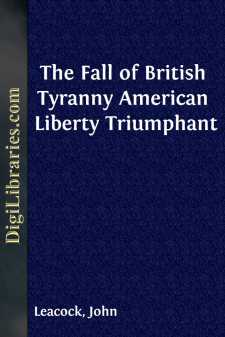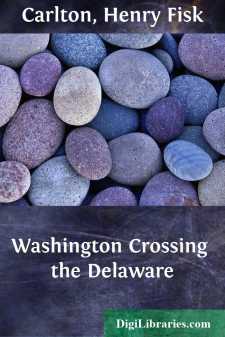Drama Books
Sort by:
MAJOR ROBERT ROGERS (1727-1795) Robert Rogers, a soldier of fortune, is the Davy Crockett of Colonial times. Born at Dumbarton, New Hampshire, on November 17th (some authorities say 1730, another 1731, while the Dictionary of National Biography says 1727), he was the son of James Rogers, a farmer living in a frontier cabin at Methuen, in upper Massachusetts. Robert's boyhood was spent in an...
more...
THE FIRST ACT. Debt The scene is a conservatory built and decorated in Moorish style, in the house of the Rt. Hon. Sir Julian Twombley, M.P., Chesterfield Gardens, London. A fountain is playing, and tall palms lend their simple elegance to the elaborate Algerian magnificence of the place. The drawing-rooms are just beyond the curtained entrances. It is a May afternoon. Brooke Twombley, a good-looking...
more...
by:
Ben Jonson
INTRODUCTION The greatest of English dramatists except Shakespeare, the first literary dictator and poet-laureate, a writer of verse, prose, satire, and criticism who most potently of all the men of his time affected the subsequent course of English letters: such was Ben Jonson, and as such his strong personality assumes an interest to us almost unparalleled, at least in his age. Ben Jonson came of the...
more...
by:
Honore de Balzac
ACT I SCENE FIRST (A richly decorated drawing-room; on the walls are portraits of Napoleon I. and his son. The entry is by a large double glass door, which opens on a roofed veranda and leads by a short stairway to a park. The door of Pauline's apartments are on the right; those of the General and his wife are on the left. On the left side of the central doorway is a table, and on the right is a...
more...
by:
Moliere
This play seems to have induced several English playwrights to imitate it. First, we have Sir William D'Avenant's The Playhouse to be Let, of which the date of the first performance is uncertain. According to the Biographia Britannica, it was "a very singular entertainment, composed of five acts, each being a distinct performance. The first act is introductory, shows the distress of the...
more...
by:
Bernard Shaw
PREFACE Like many other works of mine, this playlet is a piece d'occasion. In 1905 it happened that Mr Arnold Daly, who was then playing the part of Napoleon in The Man of Destiny in New York, found that whilst the play was too long to take a secondary place in the evening's performance, it was too short to suffice by itself. I therefore took advantage of four days continuous rain during a...
more...
by:
Moliere
ACT I. SCENE I.—OCTAVE, SILVESTRE. Oct. Ah! what sad news for one in love! What a hard fate to be reduced to! So, Silvestre, you have just heard at the harbour that my father is coming back? Sil. Yes. Oct. That he returns this very morning? Sil. This very morning. Oct. With the intention of marrying me? Sil. Of marrying you. Oct. To a daughter of Mr. Géronte? Sil. Of Mr. Géronte. Oct. And that this...
more...
INTRODUCTION The drama was cultivated by the Incas, and dramatic performances were enacted before them. Garcilasso de la Vega, Molina, and Salcamayhua are the authorities who received and have recorded the information given by the Amautas respecting the Inca drama. Some of these dramas, and portions of others, were preserved in the memories of members of Inca and Amauta families. The Spanish priests,...
more...
by:
John Leacock
JOHN LEACOCK Among the elusive figures of early American Drama stands John Leacock, author of "The Fall of British Tyranny," published in 1776, in Philadelphia. Even more elusive is the identification, inasmuch as his name has been spelled variously Leacock, Lacock, and Laycock. To add to the confusion, Watson's "Annals of Philadelphia," on the reminiscent word of an old resident...
more...
HOW TO BE A GOOD RADIO ACTOR The play in this book has actually been produced on the radio. Possibly you have listened to this one when you tuned in at home. The persons whose voices you heard as you listened, looked just as they did when they left their homes to go to the studio, although they were taking the parts of men and women who lived long ago and who wore costumes very different from the ones...
more...



